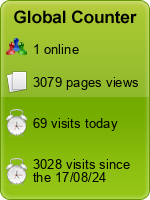The effect of group therapy activities on social dysfunction among patients with serious mental illness
DOI:
https://doi.org/10.33024/minh.v7i6.335Keywords:
Group Activity Therapy, Patients, Serious Mental Illness, Social Dysfunction, Social FunctionsAbstract
Background: The number of mental disorders: schizophrenia is increasing every year, social dysfunction is one of the negative behaviours of schizophrenia patients, namely: not wanting to socialize. Group activity therapy: socialization is an effort to facilitate the ability to socialize with isolated patients with social relationship problems.
Purpose: To determine the effect of group therapy activities on social dysfunction among patients with serious mental illness.
Method: The research was conducted using a quasi-experimental design with a pre-post test approach. A sample size of 34 patients who experienced social dysfunction was taken in a way purposive sampling with criteria; adult patients and above, can read and write, patients in inpatient and rehabilitation settings, communicate well and have a nursing diagnosis of social dysfunction. The analysis used is univariate and bivariate. The statistical test used is the Mann-Whitney U test.
Results: The analysis in the intervention group are available there were significant changes in signs, symptoms and social functioning (p-value 0.001), in the control group significant changes in signs, symptoms (p-value 0.001) and no significant changes in the patient's social function (p-value 0.798) before and after group activity therapy: socialization. There was no significant difference (p-value 0.336) in signs and symptoms and there was a significant difference in social function (p-value 0.001) after group activity therapy: socialization between the control and intervention groups.
Conclusion: There is an influence of group therapy activities on social dysfunction among patients with serious mental illness in rehabilitation ward at the West Java Provincial Mental Hospital.
References
Darmon, M. (2023). Socialization. John Wiley & Sons.
Hartsö, C., & Sundborn, H. (2022). Is There a Relationship Between Debt and Mental Health?.
Hasriana, H., Nur, M., & Anggraini, S. (2013). Pengaruh terapi aktivitas kelompok sosialisasi terhadap kemampuan bersosialisasi pada klien isolasi sosial menarik diri di Rumah Sakit Khusus Daerah Provinsi Sulawesi Selatan. Jurnal Ilmiah Kesehatan Diagnosis, 2(6), 74-79.
Hastutiningtyas, W. R., & Setyabudi, I. (2016). Peran terapi aktivitas kelompok sosialisasi (TAKS) terhadap kemampuan interaksi sosial dan masalah isolasi sosial pasien (review literatur). Care: Jurnal Ilmiah Ilmu Kesehatan, 4(3), 62-69.
Jannah, M., Laila, N., Damayanti, I., Yenni, M., & Mutia, S. A. (2024). The effectiveness of socialization group activity therapy (TAKS) on depression in the elderly in Gampong Keuramat, Kuta Alam District, Kota Banda Aceh, in 2022. Jukema (Jurnal Kesehatan Masyarakat Aceh), 10(1), 20-27.
Keliat, B. A. (2019). Keperawatan jiwa terapi aktivitas kelompok. EGC.
Kusumawati, F., & Hartono, Y. (2014). Textbook of Mental Nursing (Kusumawati Farida & Hartono Yudi, Eds.). Salemba Medika. Jakarta
Magaard, J. L., Seeralan, T., Schulz, H., & Brütt, A. L. (2017). Factors associated with help-seeking behaviour among individuals with major depression: A systematic review. PloS one, 12(5), e0176730.
Maharani, L., & Damayanti, R. (2012). Social skill training: latihan keterampilan sosial pada anak usia dini yang mengalami isolasi sosial pasca bencana. In Prosiding International Seminar & Workshop Post Traumatic Counseling” tanggal (Vol. 6, p. 7).
Ministry of Health of the Republic of Indonesia. (2018). Hasil utama Riskesdas 2018. Kementerian Kesehatan Republik Indonesia, Badan Penelitian Dan Pengembangan Kesehatan. Received from: https://kesmas.kemkes.go.id/assets/upload/dir_519d41d8cd98f00/files/Hasil-riskesdas-2018_1274.pdf
Multazam, M., Darwis, D., & Fatimah, F. (2021). Pengaruh terapi aktivitas kelompok terhadap kemampuan bersosialisasi pada klien isolasi sosial. Jurnal Ilmiah Mahasiswa & Penelitian Keperawatan, 1.1. https://jurnal.stikesnh.ac.id/index.php/jimpk/article/view/501
Nandasari, A. D., Pinilih, S. S., & Amin, M. K. (2022). Terapi aktivitas kelompok sosialisasi pada asuhan keperawatan klien dengan isolasi sosial. Borobudur Nursing Review, 2(1), 40-46.
Notoatmodjo, S. (2018). Promosi kesehatan dan ilmu perilaku. Jakarta: Rineka Cipta, 200, 26-35.
Prabowo, E. (2014). Mental Nursing Care Concepts & Applications. Nuha Medika. Yogyakarta
Pratiwi, A., & Suryati, T. (2023). Penerapan Terapi Aktivitas Kelompok Pada Pasien Isolasi Sosial. Jurnal Ilmu Kesehatan Mandira Cendikia, 2(8), 18-24.
Putra, V. R. W., & Mamnu’ah, M. A. (2015). Pengaruh Terapi Aktivitas Kelompok Sosialisasi terhadap Kemampuan Interaksi Sosial Pasien Isolasi Sosial di Rumah Sakir Jiwa Ghrasia Yogyakarta (Doctoral dissertation, STIKES'Aisyiyah Yogyakarta).
Putri, N. (2023). Application of introduction therapy in overcoming symptoms of social isolation in schizophrenia patients: Case study. Journal of Mental Nursing (JKJ): Indonesian National Nurses Association 11(2).
Rahayu, A. N. (2019). Pengalaman Orang Dengan Gangguan Jiwa (ODGJ) Paska Pasung Dalam Melakukan Rehabilitasi Psikososial. HealthCare Nursing Journal, 1(1).
Ridhyalla, A. (2015). Therapeutic communication in psychiatric nursing (Marni, Ed.; 1st ed.). Goshen Publishing. Yogyakarta
Sari, D. P., & Maryatun, S. (2020). Pengaruh Terapi Aktivitas Kelompok Sosialisasi Terhadap Kemampuan Interaksi Sosial dan Activity Daily Living Klien Isolasi Sosial di Panti Sosial Rehabilitasi Pengemis Gelandangan Orang Dengan Gangguan Jiwa. In Proceeding Seminar Nasional Keperawatan (Vol. 6, No. 1, pp. 148-154).
Stuart, G. W. (2016). Mental Health Nursing. EGC. Jakarta
Stuart, G., & Laraia, M. (2017). The Practise Of Psychiatric Nursing.
Stuart, G. W., & Sundeen, S. J. (2020). Principles and practice of psychiatric nursing.
Suharto, B. (2014). Budaya Pasung dan Dampak Yuridis Sosiologis (Studi Tentang Upaya Pelepasan Pasung dan Pencegahan Tindakan Pemasungan di Kabupaten Wonogiri). Indonesian Journal on Medical Science, 1(2).
Suwarni, S., & Rahayu, DA (2020). Increasing Interaction Skills in Socially Isolated Patients by Implementing Socialization Group Activity Therapy Sessions 1-3. Young Nurses, 1 (1), 11.
Townsend, M. (2018). Psychiatric Nursing Diagnosis Care Plans & Psychotropic Medications. EGC. Jakarta
Videbeck, S. L. (2018). Psychiatric Nursing Textbook. EGC. Jakarta
World Health Organization. (2022). Depression and Other Common Mental Disorders Global Health Estimates.
Wulandari, W. (2018). testing the validity and reliability of SFQ on a sample of students in Indonesia, using exploratory and confirmatory factor analysis. Journal of Psychology, 45.
Downloads
Published
How to Cite
Issue
Section
License
Copyright (c) 2024 Malahayati International Journal of Nursing and Health Science

This work is licensed under a Creative Commons Attribution-ShareAlike 4.0 International License.









